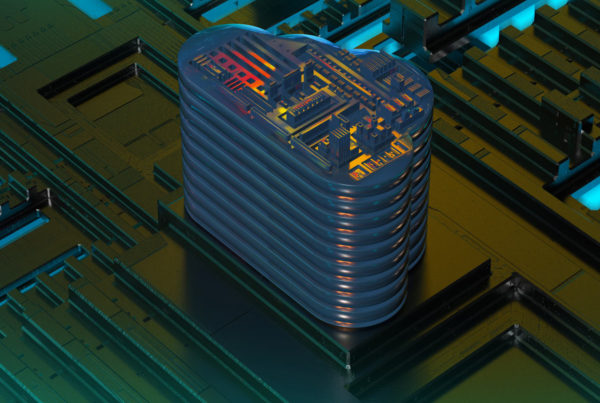Neither Clinton nor Trump is qualified. Certainly, Gary Johnson isn’t.
While we can debate the relative merits of the three candidates’ fitness to be our nation’s next Commander in Chief, what’s abundantly clear following in the wake of the first presidential debate, not to mention some disturbingly ignorant comments by Libertarian candidate Johnson, is that none of the candidates is even remotely qualified to assume the mantle of TIC…Technology-in-Chief. As billionaire businessman and Dallas Mavericks Owner Mark Cuban said recently of Mrs. Clinton, “…she just doesn’t understand technology, and she admits that she doesn’t understand technology, and to me that’s a huge negative, because in this day and age, I think wars are going to be fought, more by bytes, and more by cyber terrorism, than they are going to be fought by bombs and bullets, and if you don’t understand that, it’s going to be very difficult as Commander-in-Chief.” Cuban added that he didn’t think either of two major party candidates was “technologically literate.”
In the first presidential debate, Hillary Clinton called on tech companies to help prevent ISIS from using the Internet to radicalize people and direct its followers. Trump claimed that even though the U.S. developed the Internet, ISIS is “beating us at our own game.” And he then advocated for getting “very, very tough on cyber and cyber warfare… The security aspect of cyber is very, very tough. And maybe it’s hardly doable.” Sadly, amidst all the rhetoric, neither candidate bothered to lay out a coherent technology policy that showed any awareness of how vital technology has become to our nation, its defense, and the lives of its citizens.
The candidates’ poor grasp of technology is concerning, as our next president will govern at least through 2020, face many challenges, and thus needs to set a long-term technology policy.
Of course, no one expects the president to be a cyber warrior or even to set technology policy without expert advisors. But with major issues surrounding cyber security, consumer privacy, government access to digital data, Internet neutrality, and global Internet governance (among many other things), it’s time for the candidates to put aside divisive rhetoric and partisan platitudes, and take a real leadership role on these challenging technology issues and how America can resolve them in a manner that protects ensures our well-being while also encouraging growth and innovation.
No matter how many “tech” advisors the next president engages, it’s the president who make the final decision. In the words of President Truman “The buck stops here.” So, our next president will need to know enough about technology to evaluate his or her advisors’ recommendations.
In this way, the candidates are no different than a number of CEOs, too many of whom mistakenly believe that technology is beneath them, or that they don’t need to know technology. They have It departments to deal with that. They have businesses to run. But as a our friend Mr. Shakespeare once said, “‘Tis an unweeded garden that grows to seed things rank and gross in nature.”
Our next president will fail to understand technology at his or her own peril. Consider just one technology challenge awaiting the 45th Commander in Chief:
- Cybersecurity: After tanking in the Senate in 2012 (Congress failed to pass the bill after it encountered predictable partisan differences over industry regulation), it seems the consistent drumbeat from government officials and an emerging “Cyber Industrial Complex” were enough to get Congress to finally pass the Cybersecurity Information Sharing Act, or CISA, and it’s now officially the law of the land, created, in part, to deal with our nation’s omnipresent vulnerability to malicious hacking. The law enables federal agencies – including the National Security Agency – to share cybersecurity and really any information with private corporations. Though cybersecurity is one of the more pressing issues facing the next president, neither of the two major party presidential candidates have made any concerted effort to outline their positions, perhaps because there is no political benefit to doing so. As Wired Magazine reported, Donald Trump has no official position paper on cybersecurity or privacy, a rather disturbing thought in light of the San Bernardino terrorist’s encrypted iPhone, among many other things. Trump has made vague reference to China’s “rampant cybercrime” against the US, promised “stronger protections against Chinese hackers” as part of his position paper on the US-China trade relationship, and proposed “closing” parts of the Internet to combat ISIS. However, his cybersecurity positions have been “scattered, misguided, or both,” leading Wired to characterize them as “devoid of context, insight, clarity, or reason.”
Mrs.Clinton, on the other hand, has framed her cybersecurity positions within the context of her broader national security goals. She has also focused on China, saying that she’ll “encourage [them] to be a responsible stakeholder—including on cyberspace, human rights, trade, territorial disputes, and climate change—and hold it accountable if it does not.” Mrs. Clinton has called for a coalition of public and private interests working together to improve our cybersecurity, but avoided commenting on CISA and deflected questions about who was right in the Apple-FBI encryption saga, and instead sought a middle ground, which Wired stated “doesn’t exist” as it pertains to cybersecurity and encryption.
But the fact the candidates don’t seem to care all that much about one of this race’s most important issues doesn’t mean that we shouldn’t. Indeed, more now than ever before, the presidential candidates need to learn, at the bare minimum, enough about technology to acquire a basic understanding of what it can do and what can go wrong. I’m not suggesting that our next president needs to know how to upgrade his or her computer’s memory or remove malware any more than I expect soldiers in battle to provide health care for patients. But the candidates must set a clear and cogent technology policy and be able to stand up in front of the American people) and explain what needs to be done and why, even if this means hiring someone to tutor them on technology, ideally a trusted consultant with a foot in both the worlds of technology and government who, to borrow a well worn political metaphor, can exist comfortably on both sides of the aisle.
The next president doesn’t need to peruse technical journals, but should be aware of technology trends, regularly asking the chief technology officer to look into an issue and send them a concise summary. The next president doesn’t need to be a hacker, but must learn what hackers can and cannot do, what constitutes cyber-warfare, and what resources the country has to safeguard our technology and networks.
I hope subsequent presidential debates provide more of an opportunity for both major party candidates to clarify their positions on technology and to show how they will lead on an agenda to expand technology opportunities and better protect America from hostile hackers as well as software bugs and malfunctions that put us all at risk.
Image By: Ashton Bingham
The post Not Qualified appeared first on Lloyd Marino.
Source: New feed


